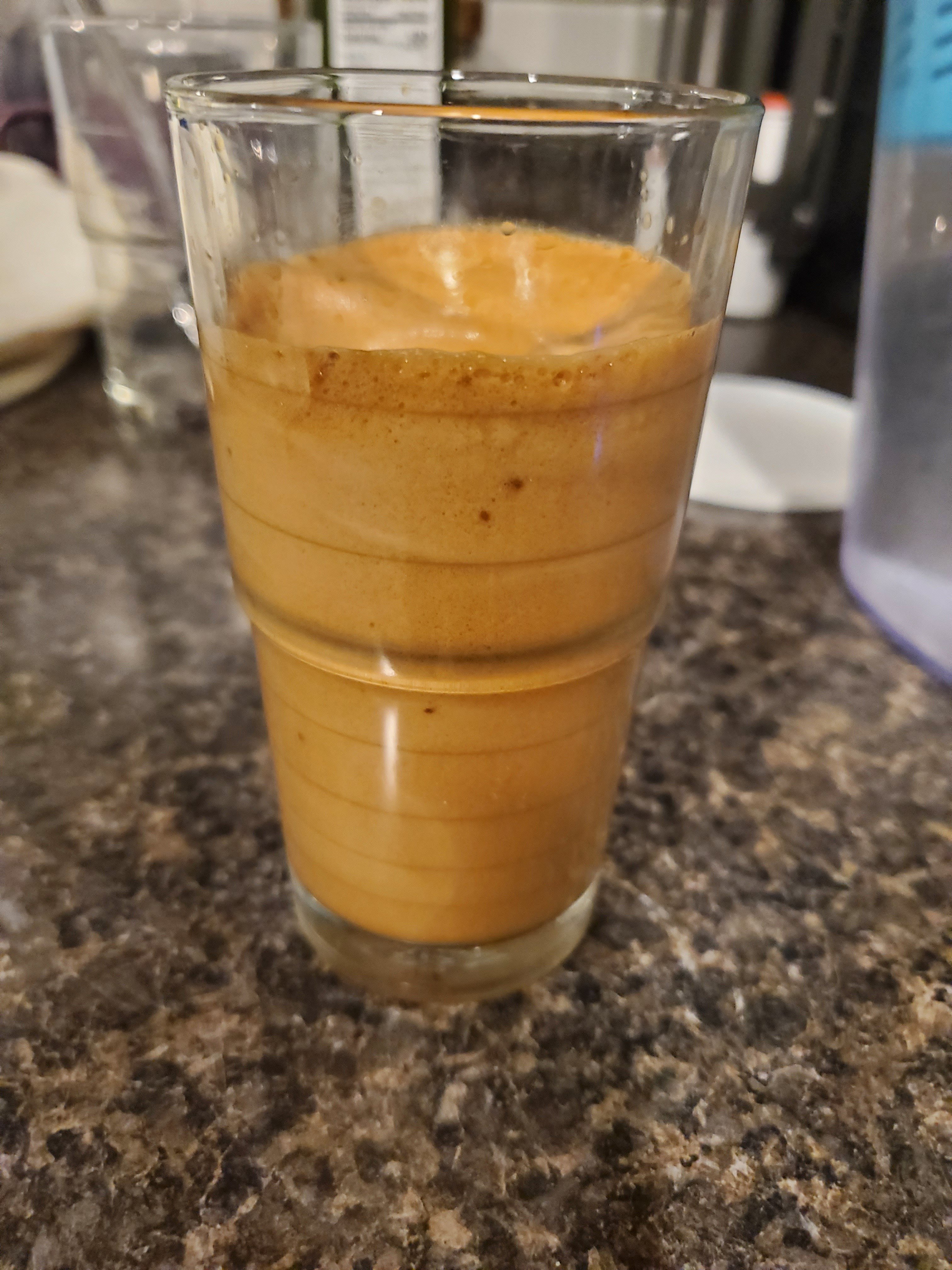It is somewhat ineffecient spacewise. But my area tends to have fruit fly problems during the summer, so we use the smaller plastic bags to more tightly seal food waste to keep fruit flies from getting to it. Also reduces odors from the trash
Same here. I started doing it as a silly thing to tease/bug my girlfriend but now it's become a permanent part of my personality. I will now only say "jadies and lentlemen", and I did it so frequently that she says it too.
For me, the biggest factor is the quality of the coffee. If it's too good (in taste) then there are more oils which break the foam. But if it's too bad it will have barely any taste. Awhile back I found a really good instant dark roast that had good foam and good taste but it's gone now. The coffee I currently use is fairly good though. This is how much foam I get from it, with one spoonfull of coffee:

Love the Greek Frappè! I prefer using a milk frother rather than shaking to make the foam; I always get thicker foam that way. If you do shake it, you should add the ice beforehand. Even better, cut out the ice and add vanilla ice cream instead and it becomes a great dessert!
Paging Dr. Bees: https://www.smbc-comics.com/comic/bees-2
Measure theory gets pretty abstract, so I recommend using a source thats not me. For the Real Numbers, the standard measure (usually the Lebesgue measure) is a way to generalize notions of lengths of intervals to sets that are not intervals or easy unions of intervals. For any set E, we can find various sequences of open intervals (potentially infinitely many intervals) whose union will contain E. The Lebesgue outer measure of E is defined as the infimum of the sum of the lengths of those sequences of intervals (infimum is similar to minimum except that an infimum may not actually be attained). The set E is considered Lebesgue measurable if it satisfies am additional criterion (Caratheodory criterion) in which case the Lebesgue measure is equal to the Lebesgue outer measure. If E does not satisfy that criterion, then it is non-measurable. A measure has desirable certain properties that an outer measure does not satisfy, which is why we prefer the former. Apologies to all math people for any inaccuracies in the above description, it's been a while.
Even in theoretical math, 0.999 repeating ends up being exactly equal to 1. In fact, any terminating decimal can be rewritten in a similar manner. For example, 0.25 is exactly equal to 0.24999999 repeating